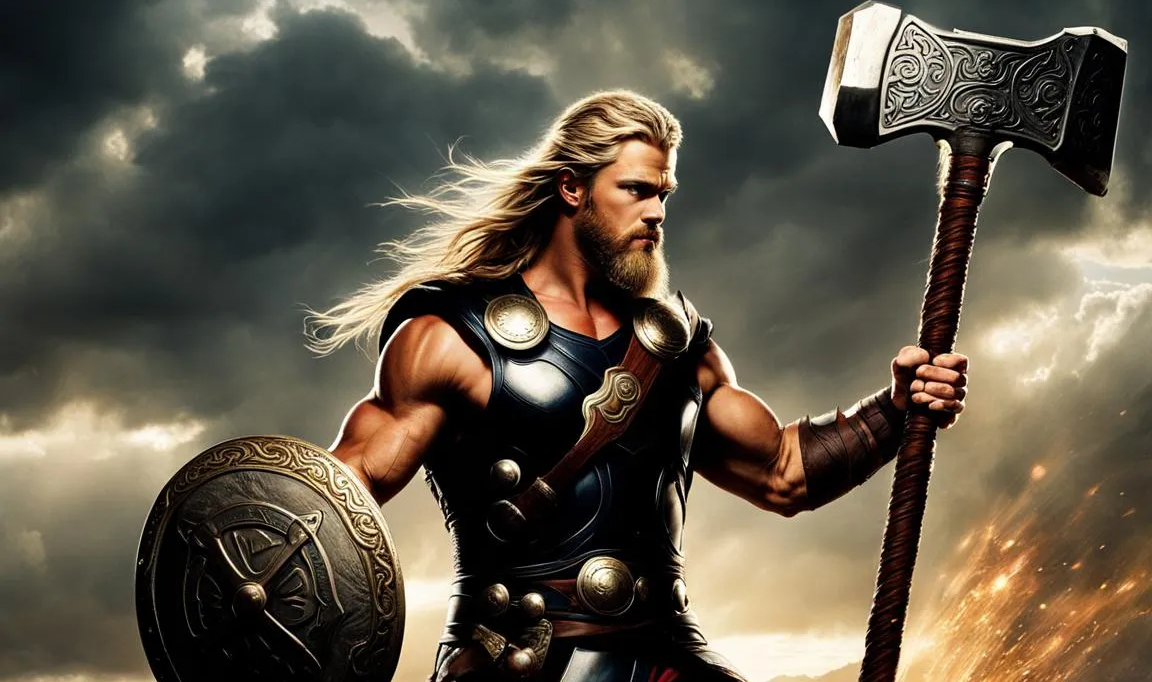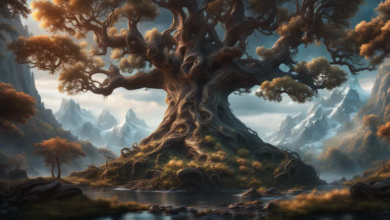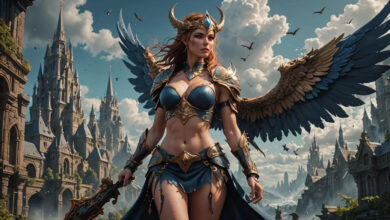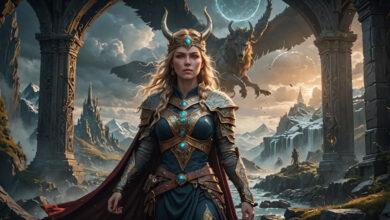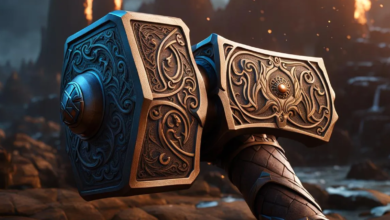Thor, the Norse god of thunder, storms, and strength, stands as one of the most revered and powerful deities in Norse mythology. Son of Odin, the all-father, and Fjörgyn, the personification of the earth, Thor occupies a central role in the pantheon of gods and the imaginations of the Norse people. His name, synonymous with the rumble of thunder across the sky, reflects his dominion over the elements and his role as a protector of the realms of gods and humans alike.
Thor’s might is best symbolized by Mjolnir, his enchanted hammer, crafted by the dwarven brothers Sindri and Brokkr. Mjolnir, capable of levelling mountains with its blows, becomes a potent symbol of Thor’s power to both create and destroy. The hammer, which always returns to his hand after being thrown, is not just a weapon but also a sacred instrument used in ceremonies to bless marriages, births, and funerals, signifying Thor’s deep connection to the cycles of life and death.
Apart from Mjolnir, Thor’s strength is further amplified by his magical belt, Megingjörð, and his iron gloves, Járngreipr, which allow him to wield the hammer with unmatched force. His chariot, drawn by the goats Tanngrisnir and Tanngnjóstr, travels across the skies, generating the thunder and lightning for which he is known. This image of Thor, with his chariot and thunderous presence, encapsulates his role as a god of the people, accessible and vital to their daily lives and survival.
Thor’s exploits are numerous and legendary, often involving battles with the giants of Jotunheim, the realm of chaos and destruction. His encounters with these formidable foes underscore his role as a defender of the cosmic order against the forces of chaos. Among these tales, his quest to retrieve Mjolnir from the giant Thrym, who demanded the goddess Freyja in exchange for the hammer, showcases Thor’s bravery and his importance in maintaining the balance and protection of the gods and Midgard, the human realm.
Despite his fierce exterior, Thor is also depicted with a certain warmth and humour. His straightforwardness, loyalty, and dedication to the protection of Asgard and Midgard earn him the affection and reverence of both gods and humans. Unlike Odin, who is often associated with the complexities of wisdom, magic, and war, Thor’s straightforward nature makes him a more relatable figure to the Norse people, embodying the ideals of strength, perseverance, and protection.
Thor’s significance extends beyond the mythological narratives, influencing the naming of the fifth day of the week, Thursday (“Thor’s day”), in English and other Germanic languages. His legacy is a testament to the enduring power of Norse mythology, reflecting the values, fears, and aspirations of the Norse people. As the god of thunder, Thor’s mythological presence resonates with the natural forces that shaped the Norse world, making him a timeless symbol of strength, protection, and the human struggle against the forces of chaos.

